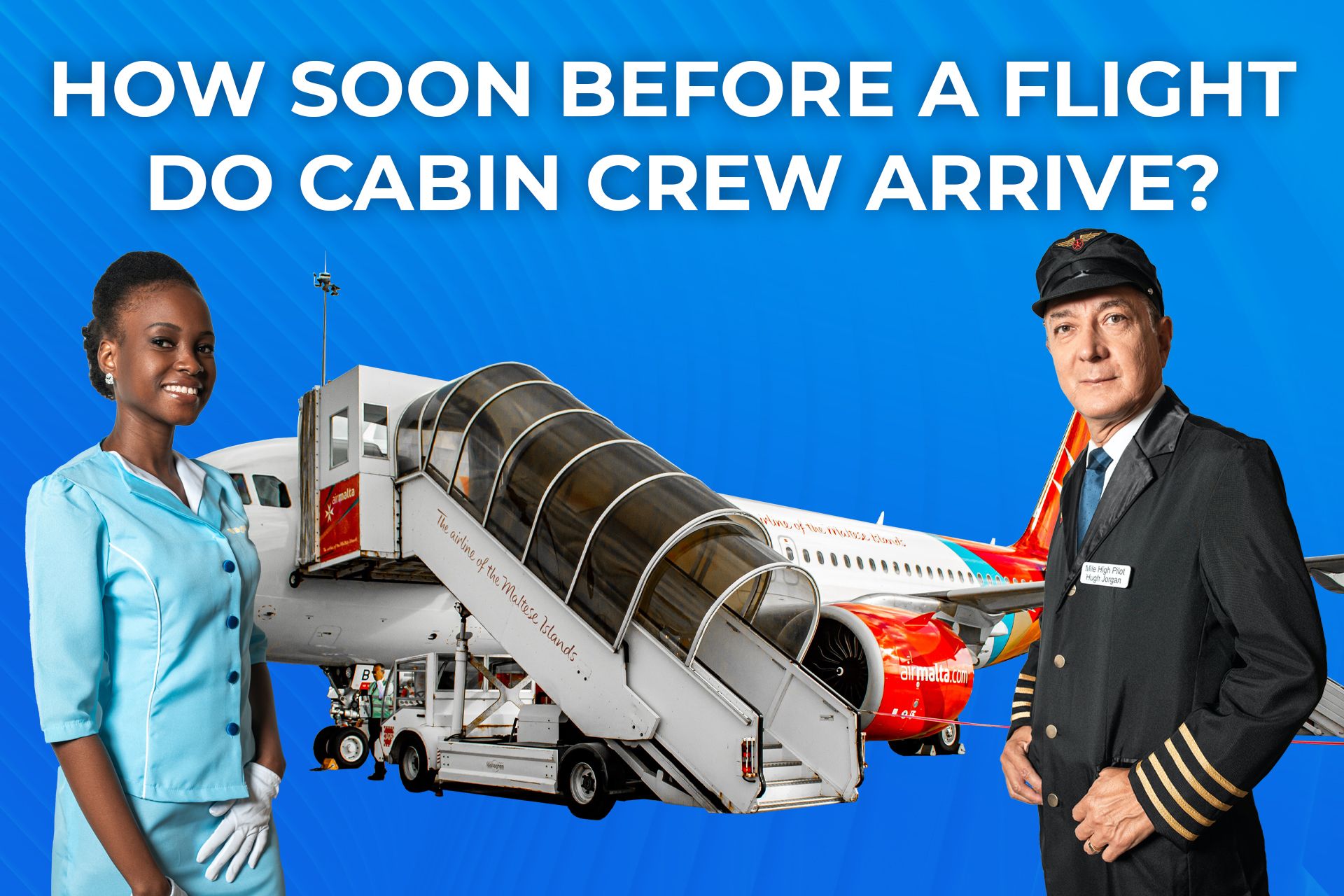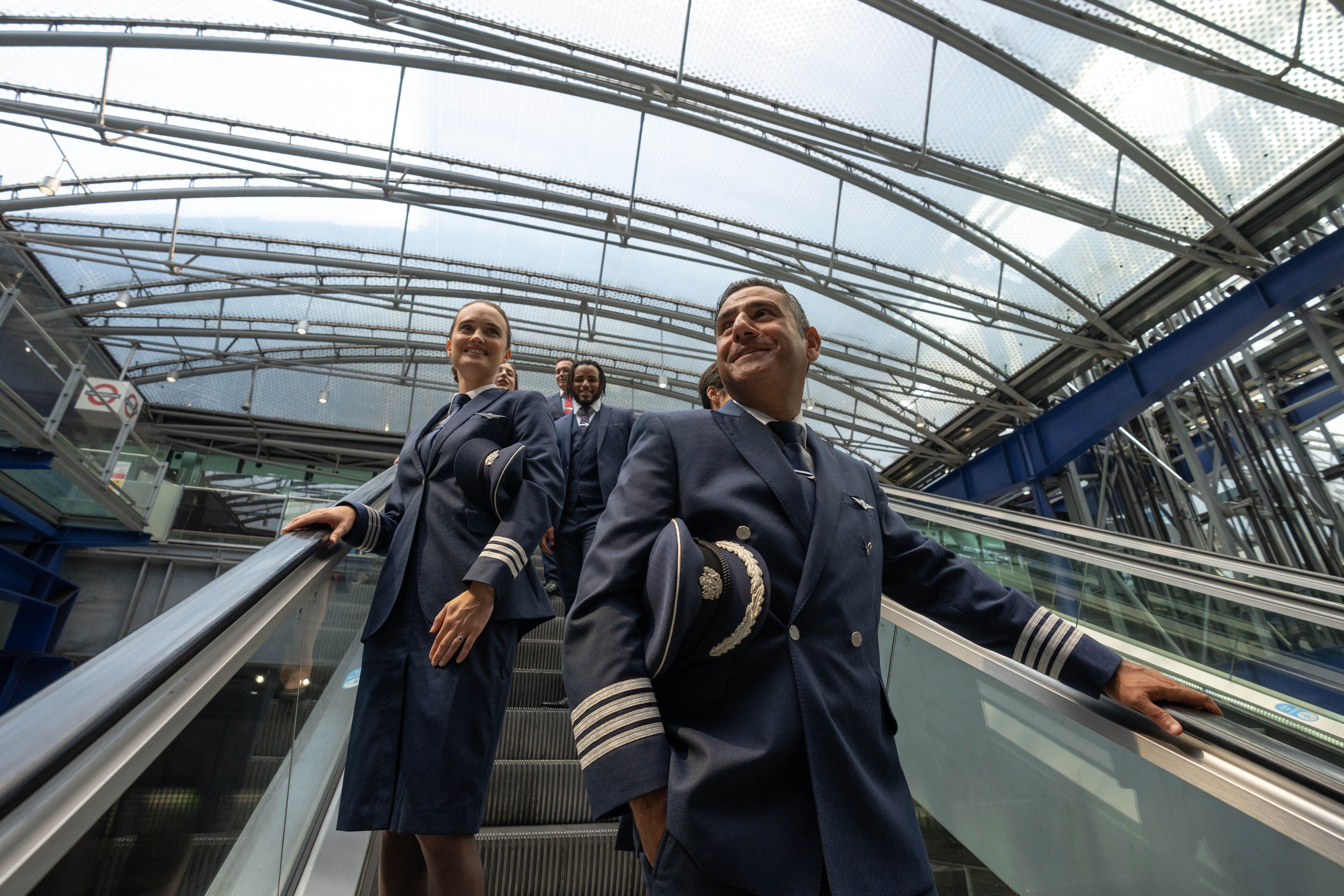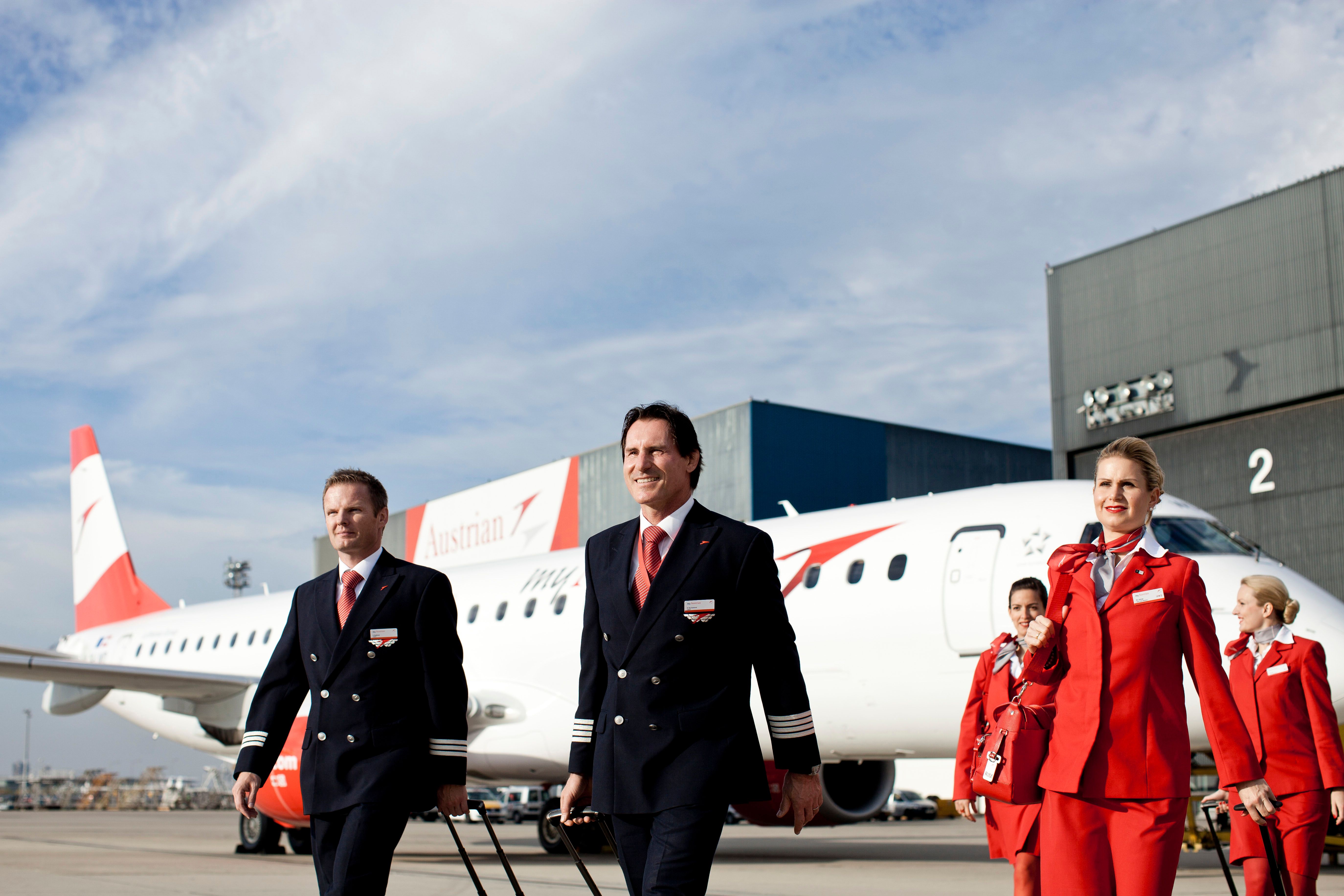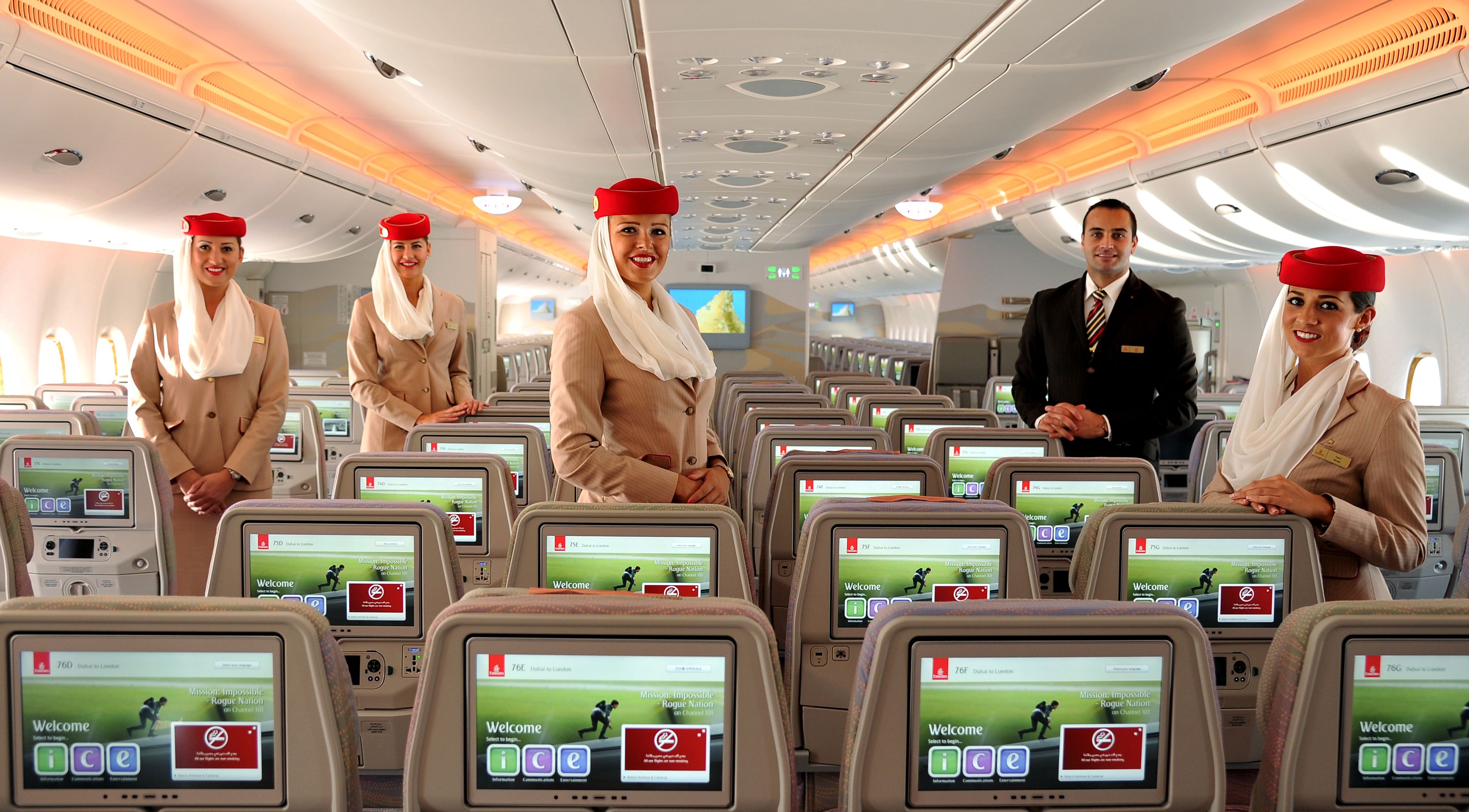Summary
- Cabin crew typically arrive 90 minutes before the flight for pre-flight preparations, safety checks, and cabin setup.
- Late crew members can face complaints, standby shifts, and risk losing their job; arriving early is crucial.
- Standby or private jet crew also have to follow similar arrival time guidelines for flight preparation and safety checks.
If you have ever flown commercially, you may have noticed groups of cabin crew members wearing identical airline-specific uniforms and black roller bags. Have you ever wondered how early must cabin crew arrive before their flight? How soon before the flight does their actual work shift begin? During your air trip, you may have noticed the cabin crew arriving at the gate long before the flight time. This is because cabin crew must follow strict guidelines for pre-flight preparations.
Arriving early for the flight may mean catching an early shuttle to the airport or catching an earlier flight (when commuting). On most airlines, cabin crew arrives 90 minutes before the flight time, sparing enough time for pre-flight checks and cabin preparation before boarding. This article explores the steps involved in pre-flight checks and the cabin crew responsibilities.
A fine balance
Typical duties of the cabin crew
- Conduct safety checks before the flight
- Welcome passengers, check boarding passes and accompany them to their seats
- Prepare and serve drinks and food to passengers
- Assist passengers and cabin crew during emergency situations
- Provide special help for passengers with special needs
- Oversee and complete checklists after arrival and passenger deboarding
If a crew member is late, they will have a complaint on file and will have to go on standby for seven hours – so your roster may be affected too. This also means, if you have three late reports or have three complaints, then you could lose your job, so it’s always better to be prepared early. No one wants to be late for a flight and, of course, sometimes unseen circumstances occur, but you don’t want to be rushed at the start of a long day ahead.
Photo: British Airways
After check-in
So, once you have checked in and reported for duty and dropped your luggage, it is good to make time to check on any paperwork that you need to do or to pick up any crew notices or newsletters. If the airline has a canteen (usually subsidized), there may be time for a quick meal or coffee. If the cabin crew has any extra duties that day, for example, inflight retail or charity ambassador, they may pick up the items needed for that.
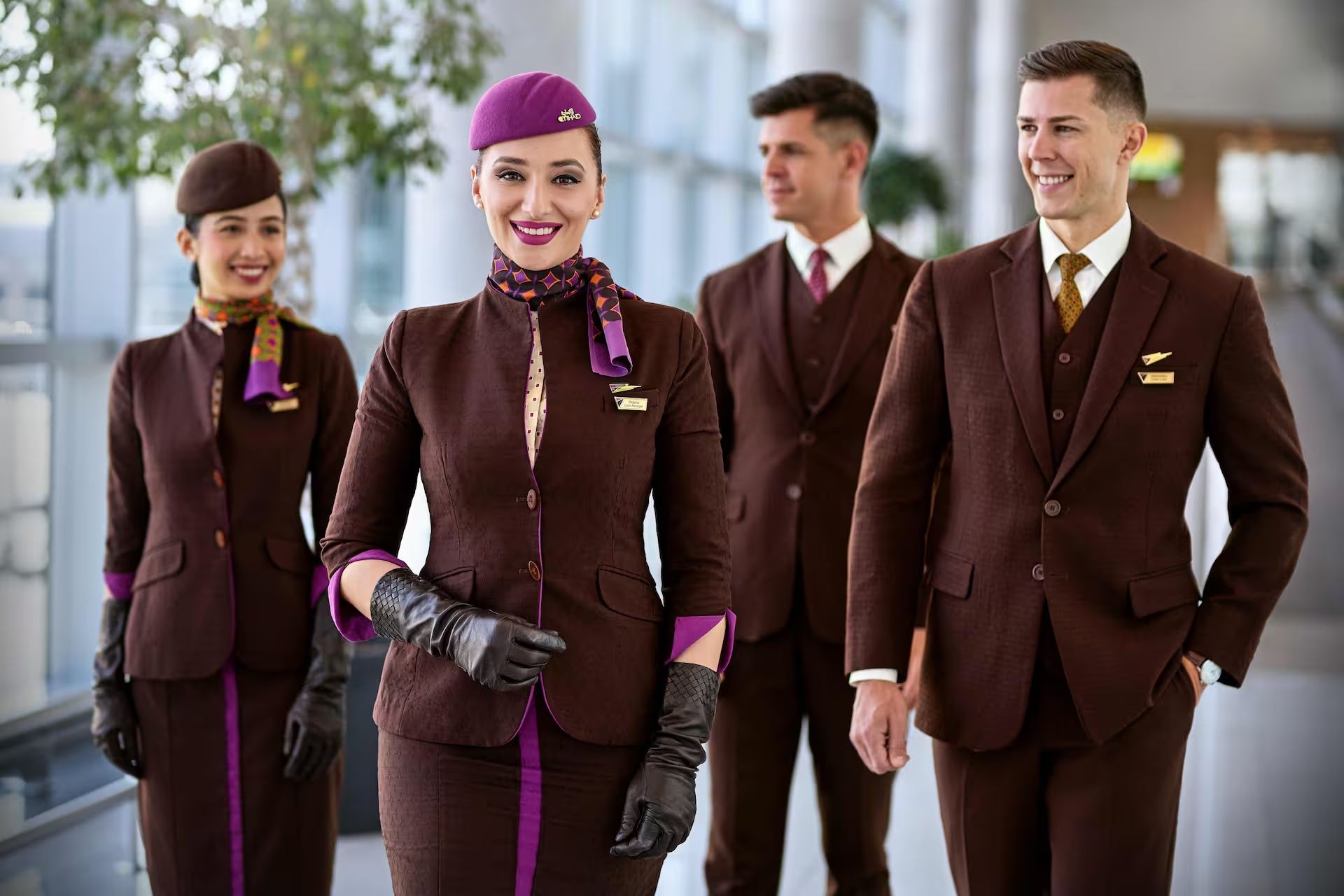
Related
Cabin Crew Through The Ages: A Brief History of Flight Attendants
Have you ever wondered what life was like for the first flight attendants?
Then comes the pre-flight briefing, if there are a few minutes to spare, it’s always good to go through an emergency procedure or scenario and brush up on first aid, as there will be questions from the senior crew member to test that your knowledge is up-to-date and that you can operate on the flight. The briefing usually lasts around 15 minutes and prepares the team for how they will operate the flight.
As highlighted by the Flying blog, after the briefing, the cabin crew collect their luggage, go through security and take the crew bus to the aircraft. On arrival, the cabin crew do pre-flight checks before passenger boarding.
Photo: Austrian Airlines
If the cabin crew commutes, extra planning is required as they may have to consider catching the earliest flight of the day or leaving a day earlier to ensure that they are on time for duty. Travel is often standby, therefore you only travel if there is a spare seat, and it also depends on your seniority. The crew member may have to book an airport hotel or take a rest in a crew lounge prior to the flight.
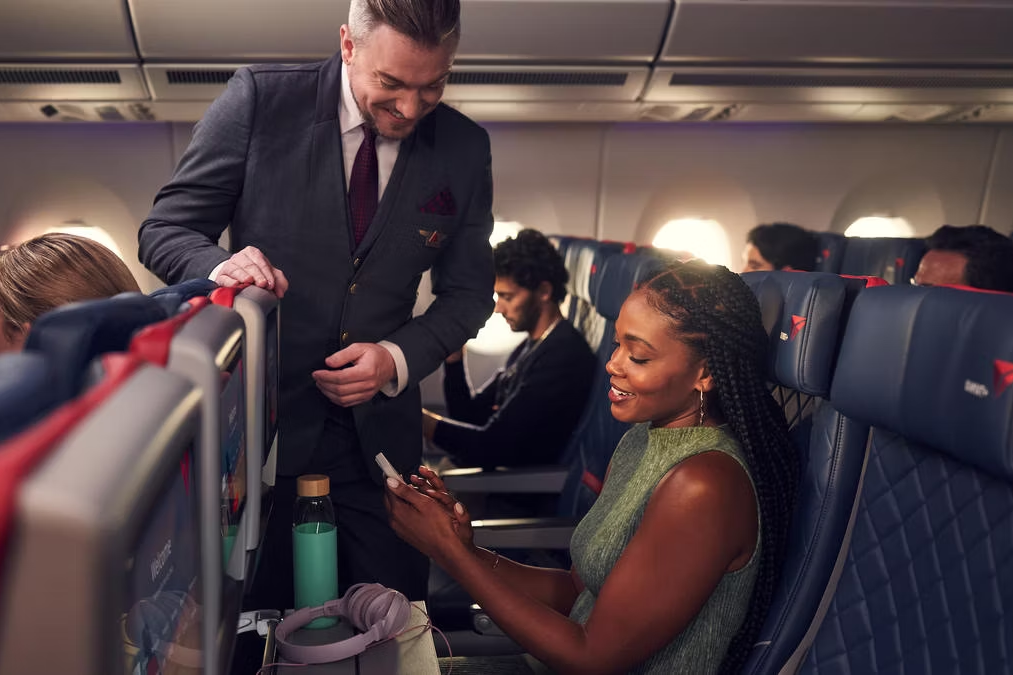
Related
Why Cabin Crew Might Ask You To Move Seats Before Departure
Has this ever happened to you on your travels?
What about standby and private crew?
Essential flight attendant skills
- Personable: Willing to help in all instances
- Timely: Must be punctual to their schedule to ensure their tardiness does not cause delays to the flight
- Communication skills: An effective communicator. Relaying information and instructions to passengers and understand their needs. Frequently communications with other cabin crew and pilots
- Teamwork: Must be able to work with a group of four or more, depending on the size of the aircraft and length of flight
- Assertiveness: Performing safety checks at specific intervals and manage passengers, including unruly ones, with assertiveness.
For cabin crew on standby duty, they will report for duty at the assigned time, whether its home standby or airport standby it and await instruction from the operations department. A last minute change to a flight like a sick crew member or a change in passenger numbers could mean that you get called out.
Photo: Emirates
For private jet cabin crew, the rule is also usually 90 minutes when the flight is planned and known and the briefing and pre-flight checks are usually quicker, but the extra time on the aircraft is needed to upload the catering. However, private jet crew can also be called out immediately for an unscheduled flight.
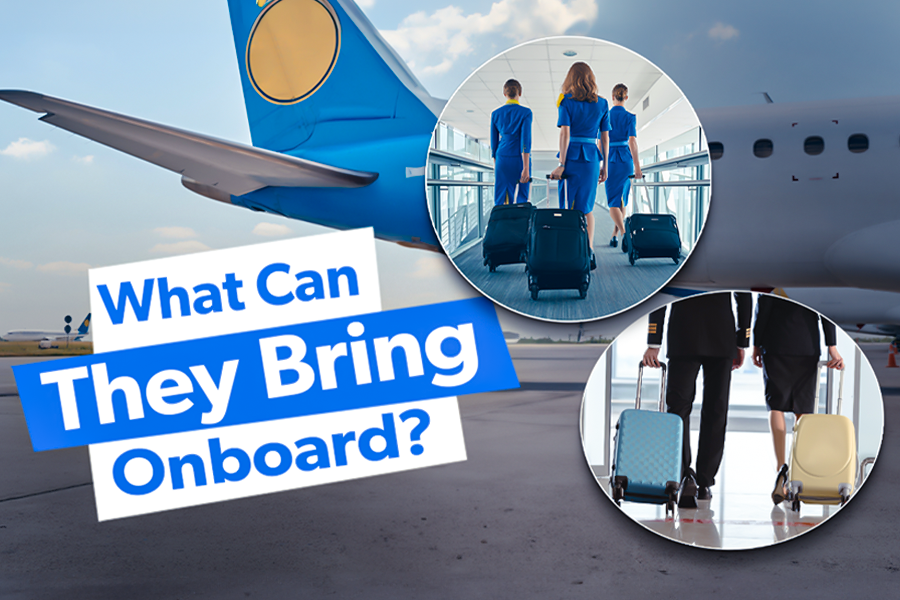
Related
Do Cabin Crew Have To Comply To The Same Baggage Allowance Restrictions As Passengers?
Are there different rules for cabin crew?
What are your thoughts on the arrival time of cabin crew? Share your opinion in the comments section.

